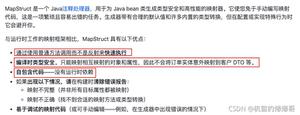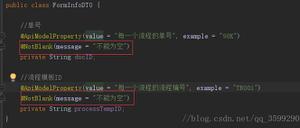jacascript DOM节点——元素节点、属性节点、文本节点
元素节点
元素节点就是HTML标签元素,元素节点主要提供了对元素标签名、子节点及属性的访问;
元素节点的三个node属性:nodeType:1、nodeName/TagName:元素的标签名大写、nodeValue:null;
其父节点 parentNode 指向包含该元素节点的元素节点 Element 或文档节点 Document;
元素的 childNodes 属性中包含了它的所有子节点,这些子节点可能是元素、文本、注释、处理指令节点;
childNodes 结合 NodeType 可以检查有几个元素子节点:
<ul class="list" id="list">
<li class="in"></li>
<li class="in"></li>
</ul>
<script>
var oList = document.getElementById('list');
var children = oList.childNodes;
var num = 0;
for(var i = 0; i < children.length; i++){
if(children[i].nodeType == 1){
num++;
}
}
console.log(num);//2 有2个元素子节点
</script>
操作属性的方法主要有hasAttribute()、getAttribute()、setAttribute()、removeAttribute()四个,可以针对任何属性使用,包括那些以HTMLElement类型属性的形式定义的属性;
- obj.hasAttribute(attr)方法返回一个布尔值,表示当前元素节点是否包含指定属性;
- IE6/IE7不支持 hasAttribute() 方法;
- obj.hasAttribute(attr)检测 class 属性时,直接用 class 就可以了,不要用className;
- obj.hasAttribute(attr)检测 for属性时,直接用 for就可以了,不要用htmlFor;
<div class="wrapper" id='test' for="nice" style="width:200px;height:100px;background:#f0f">123</div>
<script type="text/javascript">
var oTest = document.getElementById('test');
//IE6/IE7不支持hasAttribute方法
console.log(oTest.hasAttribute('class'));//true
console.log(oTest.hasAttribute('className'));//false
console.log(oTest.hasAttribute('id'));//true
console.log(oTest.hasAttribute('style'));//true
console.log(oTest.hasAttribute('for'));//true
console.log(oTest.hasAttribute('htmlFor'));//false
</script>
- obj.getAttribute(attr)方法用于取得属性的值,如果给定名称的属性不存在或无参数则返回null;
- obj.getAttribute(attr)获取 class 时,直接用 class 就可以了;IE6/IE7除外,IE6/IE7的 getAttribute(attr) 方法要用 className;
- obj.getAttribute(attr)获取 for时,直接用 for就可以了;
- obj.setAttribute(attr,value)方法接受两个参数:要设置的属性名和值,如果已经存在,则替换现有的值。如果属性不存在,则创建该属性并设置相应的值。该方法无返回值;
- obj.setAttribute(attr,value)设置 class 时,直接用 class 就可以了;
- obj.setAttribute(attr,value)设置 for 时,直接用 for 就可以了;
- obj.setAttribute(attr,value)设置 style 时,直接用 style 就可以了;在 IE7及以下,用 obj.style.setAttribute("cssText",value); 这里的 style 只是行间样式;
- 我们一般用 obj.currentStyle ? obj.currentStyle[attr] : getComputedStyle(obj)[attr]; 来获取元素当前样式;
<script type="text/javascript">
var oTest = document.getElementById('test');
oTest.setAttribute('class','aaa'); //setAttribute直接用class就可以了
oTest.setAttribute('className','bbb');
console.log(oTest.class);//undefined IE8及以下会报错缺少标识符
console.log(oTest.getAttribute('class'));//aaa getAttribute直接用class就可以了
console.log(oTest.className);//aaa
console.log(oTest.getAttribute('className'));//bbb
oTest.setAttribute('style','border:1px solid red;height: 100px;'); //setAttribute直接用 style 就可以了
console.log(oTest.style);//所有的style设置,包括你没有设置的,太多了,肯定不是你想要的
console.log(oTest.getAttribute('style'));
//border:1px solid red;height: 100px; getAttribute直接用 style 就可以了
oTest.setAttribute('for','eee'); //setAttribute直接用for就可以了
oTest.setAttribute('htmlFor','fff')
console.log(oTest.for);//undefined IE8及以下会报错缺少标识符
console.log(oTest.htmlFor);//undefined
console.log(oTest.getAttribute('for'));//eee getAttribute直接用for就可以了
console.log(oTest.getAttribute('htmlFor'));//fff
console.log(oTest);
//<div class="aaa" id="test" for="eee" style="ddd" classname="bbb" htmlfor="fff">123</div>
</script>
- obj.removeAttribute(attr)方法用于彻底删除元素的属性,这个方法不仅会彻底删除元素的属性值,还会删除元素属性。该方法无返回值;
<div class="wrapper" id='test' for="nice" style="background:#f0f;height: 100px;">123</div>
<script type="text/javascript">
var oTest = document.getElementById('test');
oTest.removeAttribute('class'); //removeAttribute直接用class就可以了
oTest.removeAttribute('for');
oTest.removeAttribute('style');
console.log(oTest);// <div id="test">123</div>
</script>
属性节点
属性节点,有的叫特性节点,差不多一个意思;
属性节点的三个node属性,nodeType:2、nodeName/name:属性名称、nodeValue/value:属性值;
属性节点还有一个 specified 属性,specified 是一个布尔值,用以区别特性是在代码中指定的,还是默认的。这个属性的值如果为true,则意味着在HTML中指定了相应特性,或者是通过 setAttribute() 方法设置了该属性。在IE中,所有未设置过的特性的该属性值都为false,而在其他浏览器中,所有设置过的特性的该属性值都是true,未设置过的特性,如果强行为其设置 specified 属性,则报错。
元素节点有一个 attributes 属性,它包含一个 NamedNodeMap,包含当前元素所有的属性及属性值,与NodeList类似,也是一个动态的集合。元素的每一个属性都由一个Attr节点表示,每个节点都保存在NamedNodeMap对象中,每个节点的 nodeName 就是属性的名称,节点的 nodeValue 就是属性的值;
createAttribute(attr) 创建新的属性节点;
attributes属性包含以下四个方法:
- obj.attributes.setNamedItem(attr); 向列表中添加节点,该方法无返回值;要先创建属性,在以nodeValue的形式赋属性值,在传入setNamedItem
- obj.attributes.getNamedItem(attr); 返回 nodeName 属性等于 attr 的节点;以" attr=value " 形式返回;
- obj.attributes.removeNamedItem(attr); 从列表中移除 nodeName 属性等于 attr 的节点,并返回该节点;
- obj.attributes.item(index); 返回位于下标 index 位置处的节点,也可以用[]代替, obj.attributes[index];
<div class="wrapper" id='test' for="nice" style="background:#f0f;height: 100px;">123</div>
<script type="text/javascript">
var oTest = document.getElementById('test');
console.log(oTest.attributes);// NamedNodeMap {0: class, 1: id, 2: for, 3: style, length: 4}
console.log(oTest.attributes.item(1).specified);//true
console.log(oTest.attributes.getNamedItem('id'));//id='test'
console.log(typeof oTest.attributes.getNamedItem('id'));//object
console.log(oTest.attributes.removeNamedItem('for'));//id='test'
console.log(oTest.attributes);// NamedNodeMap {0: class, 1: id, 2: style, length: 3}
var abc = document.createAttribute("abc");
abc.nodeValue = "1234567";
oTest.attributes.setNamedItem(abc);
//obj.attributes.setNamedItem(attr) 要先创建属性,在以nodeValue的形式赋属性值,在传入setNamedItem
console.log(oTest.attributes);// NamedNodeMap {0: class, 1: id, 2: style, 3: abc, length: 4}
console.log(oTest.attributes.item(1));//id='test'
console.log(oTest.attributes[1]);//id='test'
</script>
attributes属性主要用于属性遍历。在需要将DOM结构序列化为HTML字符串时,多数都会涉及遍历元素特性
<div class="wrapper" id='test' for="nice" style="background:#f0f;height: 100px;">123</div>
<script type="text/javascript">
function outputAttributes(obj){
var arr = [],
attrName,
attrValue,
i;
for(i = 0; i < obj.attributes.length; i++){
attrName = obj.attributes[i].nodeName;
attrValue = obj.attributes[i].nodeValue;
arr.push(attrName + '=\"' + attrValue + '\"');
}
return arr.join(" ");
}
var oTest = document.getElementById('test');
console.log(oTest.attributes);//NamedNodeMap {0: class, 1: id, 2: for, 3: style, length: 4}
console.log(typeof oTest.attributes);//object
console.log(outputAttributes(oTest));
//class="wrapper" id="test" for="nice" style="background:#f0f;height: 100px;"
console.log(typeof outputAttributes(oTest));//string
</script>
文本节点
文本节点的三个node属性,nodeType:3、nodeName:'#text'、nodeValue:节点所包含的文本,其父节点 parentNode 指向包含该文本节点的元素节点,文本节点没有子节点;
关于文本节点,遇到最多的兼容问题是空白文本节点问题。IE8及以下浏览器不识别空白文本节点,而其他浏览器会识别空白文本节点 ;所以有时候我们需要清理空白文本节点;
<div id="test">
<div>hello world!</div>
</div>
<script type="text/javascript">
var oTest = document.getElementById('test');
//第一个和最后一个都是空白文本节点
console.log(oTest.firstChild);//" "
console.log(oTest.lastChild);//" "
console.log(oTest.childNodes);//[text, div, text]
//标准浏览器输出[text, div, text],text表示空白文本节点
//IE8及以下浏览器输出[div],并不包含空白文本节点
console.log(oTest.childNodes.length); //3
//标准浏览器返回3
//IE8及以下浏览器返回1,并不包含空白文本节点
//清理空白文本节点
function cleanWhitespace(oEelement){
for(var i = 0; i < oEelement.childNodes.length; i++){
var node = oEelement.childNodes[i];
if(node.nodeType == 3 && !/\S/.test(node.nodeValue)){
node.parentNode.removeChild(node);
}
}
}
cleanWhitespace(oTest);
console.log(oTest.childNodes);//[div]
console.log(oTest.childNodes.length); //1
</script>
文本节点属性:
- 文本节点的 data 属性与 nodeValue 属性相同;
- wholeText 属性将当前 Text 节点与毗邻的 Text 节点,作为一个整体返回。大多数情况下,wholeText 属性的返回值,与 data 属性和 textContent 属性相同;
- 文本节点的 length 属性保存着节点字符的数目,而且 nodeValue.length、data.length 也保存着相同的值;
<div id="testData">hello world!</div>
<div id="testWholeText">hello world!</div>
<script type="text/javascript">
var oTestData = document.getElementById('testData');
//第一个和最后一个都是空白文本节点
console.log(oTestData.firstChild);//"hello world!"
console.log(typeof oTestData.firstChild);//object
console.log(oTestData.childNodes.length); //1
console.log(oTestData.firstChild.nodeValue);//"hello world!"
console.log(typeof oTestData.firstChild.nodeValue);//string
console.log(oTestData.firstChild.data);//"hello world!"
//文本节点的data属性与nodeValue属性相同,都是 string 类型
console.log(oTestData.firstChild.data === oTestData.firstChild.nodeValue);//true
var oTestWholeText = document.getElementById('testWholeText');
console.log(oTestWholeText.childNodes); //[text]
console.log(oTestWholeText.childNodes.length); //1
console.log(oTestWholeText.firstChild.wholeText);//hello world!
console.log(oTestWholeText.firstChild.data);//hello world!
oTestWholeText.firstChild.splitText('or');
console.log(oTestWholeText.childNodes); //[text, text]
console.log(oTestWholeText.childNodes.length); //2
console.log(oTestWholeText.firstChild);//#text
console.log(oTestWholeText.firstChild.wholeText);//hello world!
//wholeText属性将当前Text节点与毗邻的Text节点,作为一个整体返回。
console.log(oTestData.firstChild.length);//12
console.log(oTestData.firstChild.nodeValue.length);//12
console.log(oTestData.firstChild.data.length);//12
</script>
文本节点方法:
文本节点的操作与字符串的操作方法相当类似。一般地,我们获取文本都用 innerHTML,然后再去字符串的操作方法去操作。
- document.createTextNode(text); 方法用于创建文本节点,这个方法接收一个参数,要插入节点中的文本;插入的是文本,就算写的是标签,也是当做文本来插入的;
- splitText(index) 方法将一个文本节点分成两个文本节点,即按照 index 指定的位置分割 nodeValue 值。原来的文本节点将包含从开始到指定位置之前的内容。这个方法会返回一个新文本节点,包含剩下的文本;
- appendData(text) 方法将 text 添加到节点的末尾,该方法无返回值;
- deleteData(index,count) 方法从 index指定的位置开始删除 count 个字符,无返回值;
- insertData(index,text) 方法在 index 指定的位置插入 text,无返回值;
- replaceData(index,count,text) 方法用 text 替换从 index 指定位置开始到 index+count 为止的文本,无返回值;
- substringData(index,count) 方法提取从 index 指定的位置开始到 offset+count 为止处的字符串,并返回该字符串。原来的文本节点无变化;
以上所述是小编给大家介绍的jacascript DOM节点——元素节点、属性节点、文本节点,希望对大家有所帮助,如果大家有任何疑问请给我留言,小编会及时回复大家的。在此也非常感谢大家对网站的支持!
以上是 jacascript DOM节点——元素节点、属性节点、文本节点 的全部内容, 来源链接: utcz.com/z/314000.html







